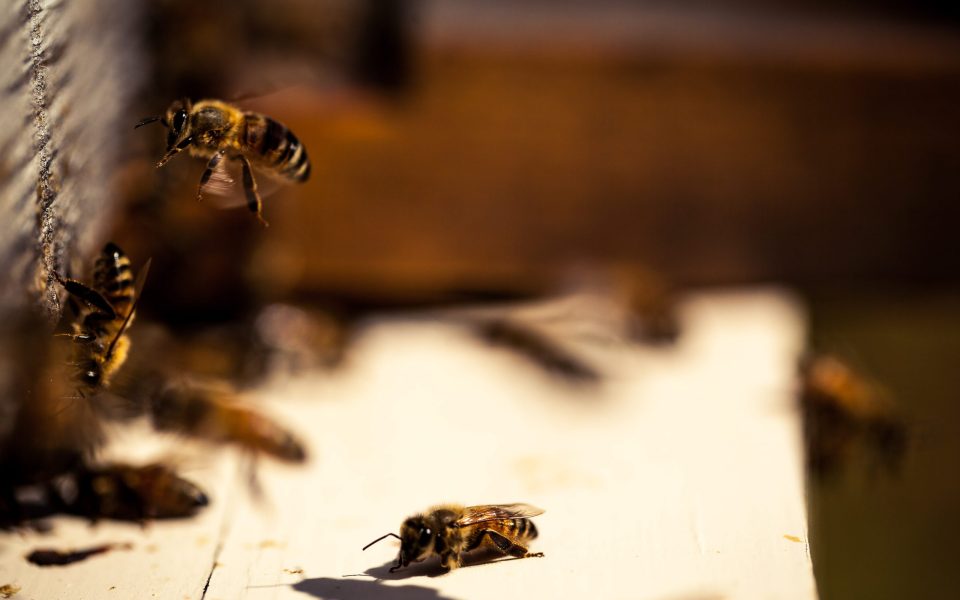Photo essay by Caleb Smallwood, words by Brian Clarey
Bill Mullins plies his trades — all of them — from his backyard in a corner of Greensboro near Guilford College. In his time he’s been a soldier, a radio operator, a newspaper publisher, a political operative and an insurance salesman. Throughout it all there have been the bees.
He blames his first wife, to whom he mentioned in the 1940s as they were flying to a Florida honeymoon that he had always wanted to be a beekeeper.
“Well then, why aren’t you?” she asked.
For their first wedding anniversary she enrolled him in a beekeeping course at the University of Alabama at Birmingham.
The bees, but not the wife, have been with him ever since.
The bees, Mullins says, are the perfect employees.
“They literally work themselves to death,” he says. “They make honey all day and fan it all night [with their wings]. When it gets to 17 percent moisture, they cap it to store it as food for the winter.”
Mullins says he gathers more honey from his Greensboro hives, stocked with Italian honeybees and whatever others he can lure onto his property, than he does from the ones on his country property in the Blue Ridge Mountains, pointing to the gardens and fruit trees that buttress his backyard.
“Honey is just nectar from flower blossoms that the bees have processed,” Mullins says. “People think it goes through their digestive system, but that’s not true. They have a honey tank; the nectar mixes with 31 enzymes that the bees produce.”
It’s good for all kinds of things: a natural antibacterial and antifungal agent, a homeopathic against allergies and source of energy and micronutrients. Mullins turns the wax into candles, makes vinegar from the filtrate and suggests that stings from the bees help fight arthritis.
“I don’t know a single beekeeper with arthritis,” he says, “and I know ’em from 5 to 95.”
Quaker Acres Apiary products, and Bill Mullins himself, can be found at the Greensboro Farmers Curb Market on Wednesday and Saturday mornings.
Join the First Amendment Society, a membership that goes directly to funding TCB‘s newsroom.
We believe that reporting can save the world.
The TCB First Amendment Society recognizes the vital role of a free, unfettered press with a bundling of local experiences designed to build community, and unique engagements with our newsroom that will help you understand, and shape, local journalism’s critical role in uplifting the people in our cities.
All revenue goes directly into the newsroom as reporters’ salaries and freelance commissions.


Leave a Reply